Facing a traffic charge for leaving the scene of an accident can be daunting. In Ontario, the courts take such matters seriously, which makes understanding your rights and possible defences essential. A conviction could result in penalties that impact your driving record and financial stability for years to come. This comprehensive guide aims to provide helpful information on what to do if you are charged, the legal process involved, and how to structure a defence strategy.
Understanding Ontario’s Laws on Leaving the Scene of an Accident
Ontario’s Highway Traffic Act outlines the obligations that drivers have immediately after a collision. Specifically, you are required to remain at the location, exchange relevant information with the other party (or parties), and, if necessary, report the incident to law enforcement. Failing to do so can result in serious repercussions, which underscores the importance of complying with these rules whenever you are involved in a traffic incident.
It is crucial to know that leaving the scene is legally referred to as “Fail to Remain.” Even if no injuries or major damage have occurred, neglecting to stay and fulfill the necessary steps can lead to a ticket or charge. Understanding the statutory requirements, along with any valid exceptions, is the first step in planning your defence.
Many people want to know how to beat a leaving the scene of an accident ticket when they have been charged in Ontario. A thorough knowledge of the legislation, combined with careful evidence collection, can be instrumental in successfully challenging the allegations. Hiring legal help can further enhance your chances of a favourable outcome.
Legal Consequences of Leaving the Scene in Ontario
Before you decide on a strategy, it is helpful to be aware of the consequences of leaving the scene of an accident. Depending on the specifics, penalties may include:
- Fines: Substantial monetary fines are often imposed.
- Demerit Points: Convictions carry 7 demerit points that remain on your driving record fortwo years.
- License Suspension: In more severe cases, the court can order a suspension of your driving privileges.
- Insurance Rate Increases: Insurance providers typically raise premiums for individuals with serious convictions on their record.
Understanding these risks underscores why it is critical to respond promptly and properly if you have been accused of leaving the scene. Even a minor traffic incident can have lasting consequences, so taking the charge seriously is vital.
Valid Defences Against a Leaving the Scene Charge
Multiple defences may apply if you are trying to fight a leaving-the-scene charge. Keep in mind that each case is unique. Nevertheless, some common defences include:
- Lack of Awareness: You were genuinely unaware that a collision had taken place.
- Safety Concerns: You left the scene because you felt threatened or in danger. In such situations, you might still be obligated to report the incident to a police station or other authority as soon as possible.
- Immediate Medical Emergency: You had to leave to seek urgent medical assistance, either for yourself or another person.
- Factual Disputes: If the charge resulted from a misunderstanding (e.g., someone else was the driver), factual inaccuracies could serve as a defence.
Gathering documents, contacting witnesses, and maintaining clear communication with legal counsel can improve your chances of successfully challenging a ticket. Saying I panicked and left the scene of an accident is not a defence. Thorough review of the circumstances would be need to find other potential defenses.
How to Gather Evidence to Support Your Case
Evidence can make or break a defence. The more credible and organized your documentation is, the more persuasive your argument will be in front of a justice of the peace. Consider the following strategies when collecting evidence:
- Photographs: Take clear images of any damage, road conditions, skid marks, and other contributing factors at or near the collision location.
- Witness Statements: Gather written or recorded testimonies from passengers, bystanders, or other motorists who saw the event.
- Video Footage: Check for surveillance cameras or dashcams that might have recorded the incident.
- Medical Records: If you left due to a medical emergency, documentation from a hospital or clinic can support your claim.
- Communication Records: Keep copies of any texts, calls, or messages exchanged regarding the incident, especially if they highlight confusion or extenuating circumstances.
Staying proactive and organized ensures you have a strong foundation for your defence. Rely on all available resources, as small details can sometimes tip the scales in your favour.
The Role of a Paralegal in Fighting Your Ticket
When you are confronted with a serious charge, it can be extremely beneficial to involve a knowledgeable legal representative. A paralegal can assist with research, gather necessary documentation, and represent you in court proceedings. Paralegals have in-depth training in Ontario’s Provincial Offences and understand the intricacies of court protocol.
At Traffic Paralegal Services, clients receive guidance on each step required to defend themselves. By focusing on traffic matters, paralegals can deliver the type of assistance that helps individuals navigate administrative and court processes more effectively. Furthermore, having a professional handle negotiations and courtroom appearances often reduces stress and ensures that no critical steps are overlooked.
How to Challenge the Officer’s Report
Sometimes, the police report may contain errors or omissions that significantly affect the nature of the charge. This is where a careful review of the officer’s notes and witness statements becomes crucial. To challenge the report:
- Request Disclosure: Obtain all relevant documents from the prosecution, including the officer’s notes, witness statements, and any available videos.
- Compare Accounts: Look for inconsistencies in the version of events, times, or descriptions of the collision.
- Highlight Mistakes: If you find factual inaccuracies in the officer’s report, present evidence to correct the record.
- Cross-Examination: During trial, question the officer or witnesses about any inconsistencies to undermine the reliability of their statements.
By identifying and exposing errors in the officer’s documentation, you create opportunities to lessen or potentially dismiss the charge altogether.
Court Procedures and What to Expect
When fighting a ticket for failing to remain at the scene, understanding the court process is instrumental to being prepared. Below is a simplified overview of what may take place:
- Early Resolution Meeting: In some jurisdictions, you may meet with a prosecutor to discuss the case and explore possible resolutions.
- Pre-Trial Preparation: You or your legal representative gather evidence, prepare witnesses, and formulate arguments.
- Trial: If no agreement is reached, your case goes to trial before a justice of the peace. Both sides present their evidence, witnesses may testify, and the court decides on a verdict.
- Sentencing: If you are found guilty, the court will impose a sentence based on statutory penalties and any aggravating or mitigating factors.
A paralegal can help guide you through the complexities of scheduling, disclosure requests, and court submissions, reducing the risk of procedural errors that might weaken your case.
Possible Outcomes: Fines, Points, and License Suspension
Penalties for failing to remain at the scene vary depending on the severity of the incident and your driving record. Below is a brief table outlining typical outcomes:
| Outcome | Details | Potential Impact |
| Fines | Ranging from hundreds to thousands of dollars | Financial strain and possible court fees |
| Demerit Points | 7 points | Risk of license suspensions or further review |
| License Suspension | Length varies depending on case specifics | Inability to legally drive for a set period |
| Insurance Hikes | Significantly increased premiums | Financial burden over an extended duration |
If you are wondering how many demerit points a driver accumulates for leaving the scene of a collision, the answer in Ontario is typically seven. This amount is quite high, meaning your record could be severely affected, so it’s essential to address the charge promptly. In addition, insurers often view a conviction for fleeing the scene of an accident as indicative of high risk, further increasing potential costs.
How to Avoid a Conviction on Your Driving Record
A conviction can remain on your record for several years, raising insurance premiums and jeopardizing your employment if driving is part of your job. To minimize these risks:
- Seek Timely Legal Advice: Contacting professionals early can help you identify the best defence strategy.
- File Necessary Paperwork Promptly: Ensure you respect all deadlines for disclosure requests, court filings, and any other administrative requirements.
- Attend All Hearings: Missing a court date often results in an automatic conviction.
- Consider Negotiations: Sometimes, negotiating a plea to a reduced charge might be more beneficial than pursuing a trial, depending on the strength of your case.
For more resources and guidance, you can also visit Fail to Remain to see how legal professionals focus on cases involving leaving the scene of a collision. Careful planning, diligence, and a clear focus on factual evidence can lead to better outcomes, potentially helping you avoid a conviction that stays on your record.
Conclusion
Leaving the scene of a collision in Ontario is a charge taken seriously by both law enforcement and the courts. From monetary fines to potential license suspensions, the repercussions are significant. Preparing a detailed defence that challenges the prosecution’s evidence can make a substantial difference in your case. If i panicked and left the scene of an accident due to extenuating circumstances, collecting supporting evidence and seeking timely legal support may help you successfully explain your side of the story.
If you are looking for information on how to beat a leaving the scene of an accident ticket, it is paramount to understand your rights, gather as much evidence as possible, and enlist the services of a qualified paralegal. Though the laws can be strict, valid defences exist for those who act promptly and responsibly. Building a strong defence strategy today can help you protect your driving record and your financial stability in the long run.


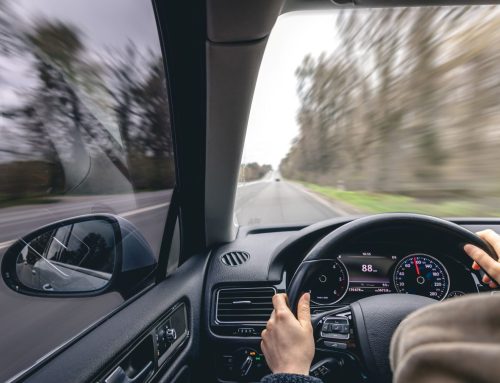
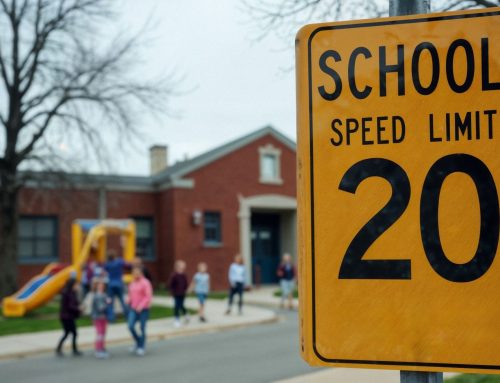
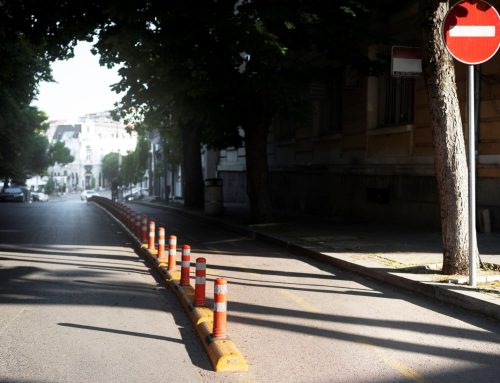
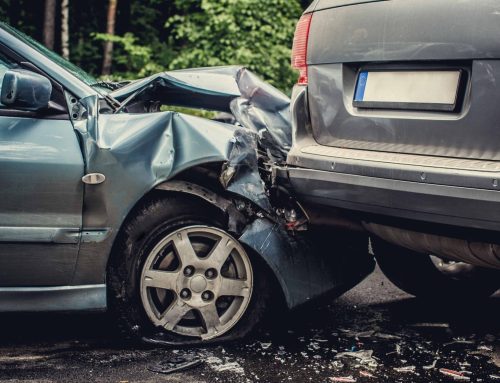
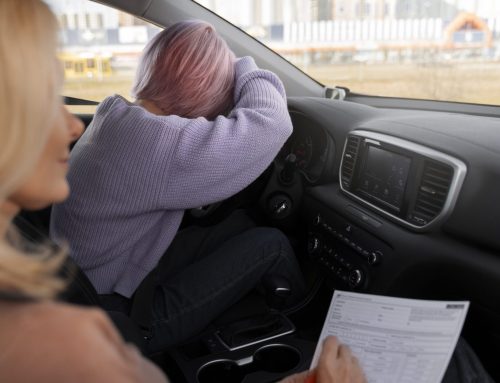
Leave A Comment
You must be logged in to post a comment.